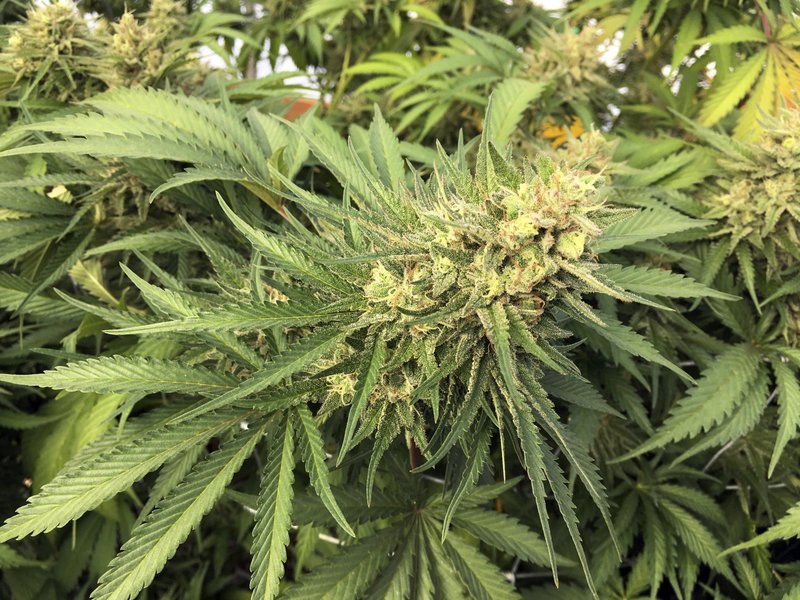As the first companies prepare to grow medical marijuana in Arkansas, a string of investigations into the claims those companies made in their applications looms over the state’s burgeoning cannabis program.
Complaints submitted to the Arkansas Alcoholic Beverage Control Enforcement Division by unsuccessful applicants accuse the five permitted growing companies of lying about their groups’ credentials, stealing information from competing applicants and locating growing facilities too close to a school, among other things.
The complaints, submitted through protest letters to the Arkansas Medical Marijuana Commission, were last-ditch efforts by companies that applied unsuccessfully for one of the state’s first lucrative cannabis-cultivating permits. Many of those unsuccessful companies received unwelcome news earlier this month from the Alcoholic Beverage Control Enforcement director, Boyce Hamlet.
Several of the 14 protests submitted to the commission make complaints about the process commissioners used to score the more than 80 applications for cultivation licenses, ranging from claims that the process was inconsistent and flawed, to allegations of outright corruption.
Those complaints, though, won’t be investigated by the Alcoholic Beverage Control staff because the scoring process was independent and subjective, Hamlet said.
“The scope of ABC’s authority for review of the medical marijuana application process will be limited to determining if cultivation licensees or their agents provided false material statements to the Arkansas Medical Marijuana Commission during the application process,” Hamlet wrote in the letter.
Several complaints of that nature are pending. Additionally, several protest letters claim that three of the five licensees didn’t follow the constitutional and regulatory requirements for the location of their facilities. The Alcoholic Beverage Control Enforcement Division could, for example, take action against a grower locating too close to a church, school or day care.
The results of the investigations into those matters are eagerly awaited by unsuccessful applicants hoping to get a growing license if one becomes available. The Alcoholic Beverage Control Enforcement Division has the authority to fine a medical marijuana growing company and suspend or revoke its license.
Most of the protest letters were filed in July shortly after the licenses were formally awarded.
“We anticipate decisions will be made on several protests in the coming weeks,” said Scott Hardin, a spokesman for the state Department of Finance and Administration, which oversees the Medical Marijuana Commission and the Alcoholic Beverage Control Enforcement Division.
Arkansas voted to legalize medical marijuana in November 2016, but legal and regulatory challenges have delayed the controversial drug’s implementation. The Finance Department expects the drug to be available by the end of March when the first dispensary opens.
Applications for dispensary permits are being graded by Boston-based Public Consulting Group, which expects to complete its review in early December.
The five cultivation companies are in the early stages of constructing their facilities, and the Medical Marijuana Commission has asked representatives from those five groups to provide progress updates at a meeting Wednesday.
The Alcoholic Beverage Control investigation results are expected to begin trickling in at some point after that meeting.
An example of complaints is that Delta Medical Cannabis Co. of Newport and Natural State Medicinals Cultivation of Jefferson County falsely represented the backgrounds of individuals associated with each company.
An attorney for River Valley Relief Cultivation, which missed winning a license by one spot, claimed in a letter that Delta Medical Cannabis Co. provided false information about Jeff Botkin, one of the group’s “medical marijuana experts.”
Botkin didn’t hold the licenses required in Colorado to own and operate a marijuana business, as Delta Medical Cannabis Co.’s application said, according to the letter. Attached to River Valley Relief’s letter were records showing that Botkin’s Colorado business licenses had expired or been voluntarily surrendered in April 2016.
A spokesman for the Colorado Department of Revenue said in a March email to the
Arkansas Democrat-Gazette
that Botkin had been issued new licenses on the same day that River Valley Relief’s letter was sent to the commission.
Don Parker, an owner and spokesman for Delta Medical Cannabis Co., said Tuesday that the group hadn’t been contacted by investigators about the protest letters.
“Delta Medical categorically denies that it made any false statements in its application,” Parker said.
River Valley Relief also questioned information provided by Natural State Medicinals Cultivation about one of its owners, Robert DeBin. River Valley Relief stated in its letter that DeBin was registered to vote in Colorado in 2016 and held a medical marijuana occupational license in Colorado, yet he claimed in his Arkansas application to have lived here since 2009.
DeBin hasn’t responded to requests for comments on the matter.
Bold Team, the Cotton Plant company licensed to grow medical marijuana, has been accused of omitting information about the land where it’s planning to construct its growing facility.
Delta Medical Cannabis and Natural State Wellness Enterprises of Newport plan to locate their facilities adjacent to Arkansas State University-Newport. Several unsuccessful applicants have argued that ASU-Newport should be considered a school, and therefore, it must be at least 3,000 feet away from any growing facility.
Both of the licensed cultivation companies dispute that interpretation of the law; a state lawmaker has asked Attorney General Leslie Rutledge to opine on the matter.
